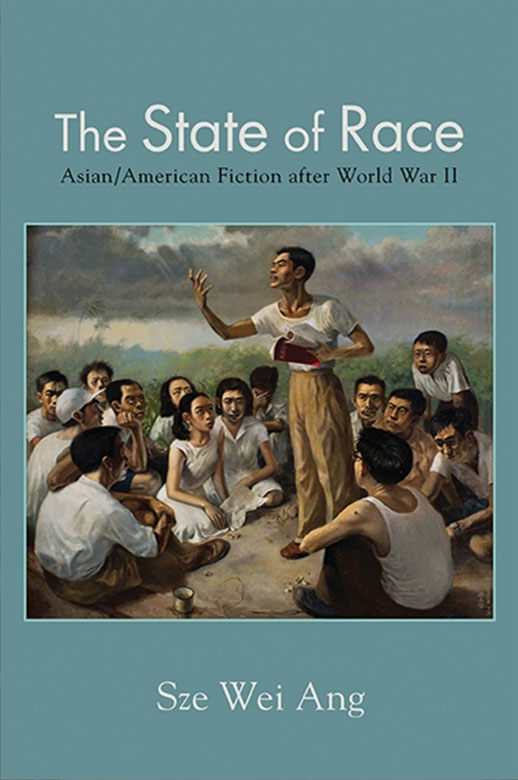Project Description
Author: Sze Wei Ang
Title: The State of Race: Asian/American Fiction after World War II
An innovative comparative study of the role racial stereotypes play in expressing state power under globalization.
Contemporary ideas about race are often assumed to be products of specific locales and histories, yet we find versions of the same ideas about race across countries and cultures. How can we account for this paradox? In The State of Race, Sze Wei Ang argues that globalization has led to new ways of using racial stereotypes as shorthand for complex social relations in disparate national contexts. Literature then provides a key to understanding these labels and the role that race has played in shoring up state power since World War II. Ang contends that in an era marked by global economic dependence, the nation-state has only become more rather than less central to organizing social life via tropes of race that cast human and cultural differences in morally charged terms. Focusing on a series of Asian American and Malaysian texts, Ang tracks the significance of two figures in particular—the model minority and the communist spy. Appearing in novels, politics, and popular culture, these stereotypes anchor powerful narratives about race, global capital, and state sovereignty. In exploring the United States and Malaysia, two countries that seem to not have much in common, Ang reveals how they share very similar ways of conceptualizing race and sheds light on an emerging global story of value.
“This book is an innovative and transnational study that demonstrates a rigorous and revelatory comprehension of Malaysian racial formation in a global context. The literary readings and their framing, as well as the incisive movement through key racial projects in Malaysia’s postcolonial history, are all exceptional.” — Josephine Nock-Hee Park, author of Cold War Friendships: Korea, Vietnam, and Asian American Literature
Sze Wei Ang is Assistant Professor of Comparative Literature at the University of Hong Kong.

